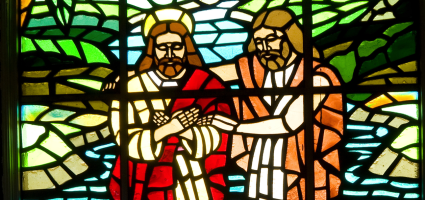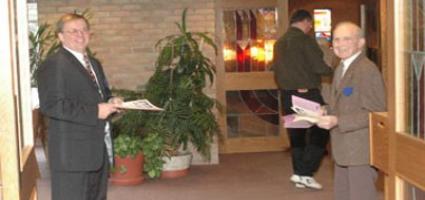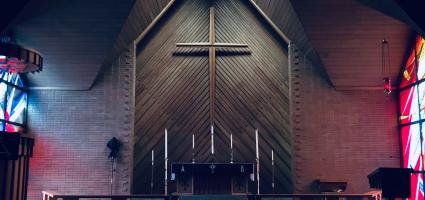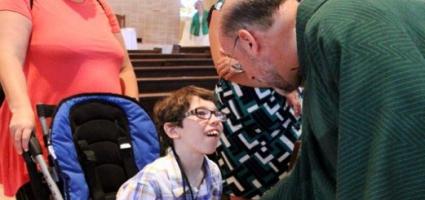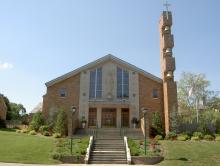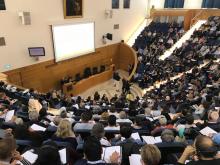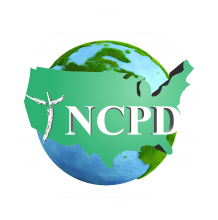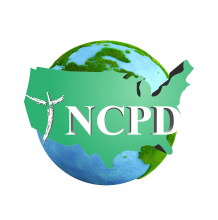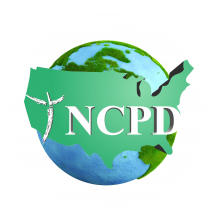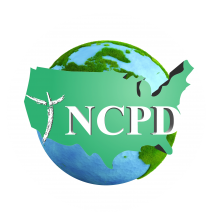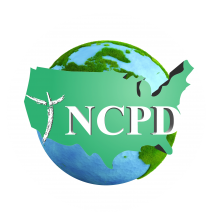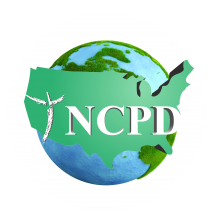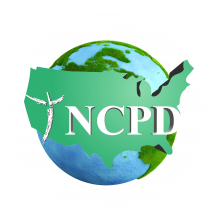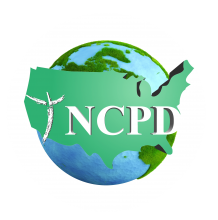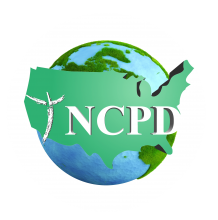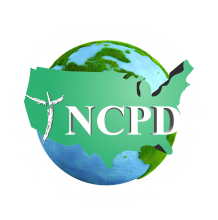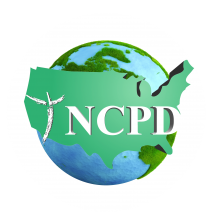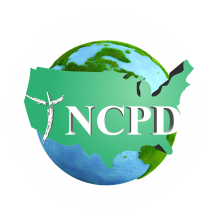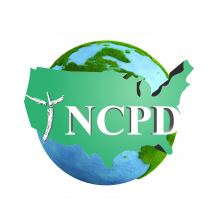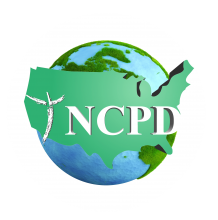Featured Resources
A Story About Going to Mass
This resource tells what it is like to go to Mass from the perspective of a child. "When I enter church I dip the tips of the fingers on my right hand in the holy water and bless my self with the sign of the cross. To myself or out loud I say, “In the name of the Father, and of the Son, and of the Holy Spirit. Amen.”My Mass Book Picture Missal
Print out this resource to create a book about each part of the Mass. A person can follow along with this book during Mass to help them meaningfully participate in the liturgy.Ten Things Every Child with Autism Wishes You Knew
Autism is an extremely complex disorder but for purposes of this one article, we can distill its myriad characteristics into four fundamental areas: sensory processing challenges, speech/language delays and impairments, the elusive social interaction skills and whole child/self-esteem issues.Vatican Conference
This fall, experts in the field of disability, theology and parish life gathered in Rome to learn about and seek to improve the accessibility of the Catechism of the Catholic Church.Parent Interview Form
The Religious Education/Faith Formation Parent Interview For a Person with Autism Spectrum Disorder and other Intellectual/Developmental Disabilities.Ethics Committee letter points out OPTN/UNOS's own Ethics committee disagrees with proposed organ policy changes, 2013
"For the reasons ably set out in the National Catholic Bioethics Center’s June 20th letter, I urge the Board to reject the proposal as written. I will limit my remarks to the worst of the several flaws the proposal contains: Its authorization of organ solicitation before any decision to withdraw lifesupport is made."Ethics Committee Comments on OPTN/UNOS Policy Plain Language Rewrite, 2013
"NCPD was established thirty years ago to implement the Pastoral Statement on People with Disabilities of the U.S. Catholic bishops. On behalf of NCPD and the fourteen million disabled Catholics it serves, I submit the following comments against the Policy Plain Language Rewrite (Rewrite) OPTN has proposed."Letter to Governor Deal of Georgia Re: H.B. 1114: Homicide; Offering to Assist in Commision of Suicide; Repeal Certain Provisions April 9, 2012
"I am Chair of the National Catholic Partnership on Disability (NCPD), which is an agency approved by the U.S. bishops to provide pastoral guidance for persons with disabilities. On behalf of NCPD, I urge you to not veto but to sign into law H.B. 1114, and thus help keep physician-assisted suicide and the threat it presents to disabled people from spreading."Testimony in Opposition to Maryland House of Delegates Bill H.B. 449 2-21-2012
"I am a resident of Montgomery County, Maryland, and also a consultant with the National Catholic Partnership on Disability (NCPD), on whose behalf I am testifying today. NCPD wishes to express our grave reservations with H.B. 449, as well as with the proposed amendment offered by the Department of Legislative Services, and urge that it not be voted out of Committee in its original or amended form."Letter to Massachusetts Legislature on "An Act Relative to Death with Dignity", H. 3884, 2012
There is no bright line between a disability considered terminal and one that is not. H.3884 offers lethal prescriptions to people whose conditions “will, within reasonable medical judgment, produce death within six months.”5 Such predictions are notoriously unreliable.6 Many people defy the odds and live on with their disabilities for many years.Stop the Violation of the Right to Religious Liberty, 2012
Call to Action: Stop the Violation of the Right to Religious Liberty Last August, the U.S.Comments Submitted by NCPD Board Chair to UNOS Re: Proposed Changes to the DCD Model Elements, 2012
Dr. Lake: I Chair the National Catholic Partnership on Disability (NCPD). NCPD was established thirty years ago to implement the Pastoral Statement on People with Disabilities of the U.S. Catholic bishops. On behalf of NCPD and the fourteen million Catholics with disabilities it serves, I urge UNOS to reject the proposal for changing the DCD Model Elements.Ethics Committee Points Out Flaws In Latest Step in Organ Donation Proposed Changes, 2012
Dr. Lake: On behalf of the National Catholic Partnership on Disability, I offer the following comments on OPTN's "Plain Language Rewrite."Letter to Maryland House of Delegates RE: Organ Donation Bill H.B 442, 2012
Dear Chairman Hammen:Interest of People with Disabilities in Defeating Initiative Petition 1112, 2011
Initiative Petition 1112 will allow Massachusetts residents to ask their physicians for lethal medication to kill themselves. Presently, it authorizes only those with terminal diseases to make such request. Nevertheless, if adopted, it will create a real threat to all people with disabilities.- ‹ previous
- 3 of 4
- next ›
Ethics Committee letter points out OPTN/UNOS's own Ethics committee disagrees with proposed organ policy changes, 2013
"For the reasons ably set out in the National Catholic Bioethics Center’s June 20th letter, I urge the Board to reject the proposal as written. I will limit my remarks to the worst of the several flaws the proposal contains: Its authorization of organ solicitation before any decision to withdraw lifesupport is made."Ethics Committee Comments on OPTN/UNOS Policy Plain Language Rewrite, 2013
"NCPD was established thirty years ago to implement the Pastoral Statement on People with Disabilities of the U.S. Catholic bishops. On behalf of NCPD and the fourteen million disabled Catholics it serves, I submit the following comments against the Policy Plain Language Rewrite (Rewrite) OPTN has proposed."Letter to Governor Deal of Georgia Re: H.B. 1114: Homicide; Offering to Assist in Commision of Suicide; Repeal Certain Provisions April 9, 2012
"I am Chair of the National Catholic Partnership on Disability (NCPD), which is an agency approved by the U.S. bishops to provide pastoral guidance for persons with disabilities. On behalf of NCPD, I urge you to not veto but to sign into law H.B. 1114, and thus help keep physician-assisted suicide and the threat it presents to disabled people from spreading."Testimony in Opposition to Maryland House of Delegates Bill H.B. 449 2-21-2012
"I am a resident of Montgomery County, Maryland, and also a consultant with the National Catholic Partnership on Disability (NCPD), on whose behalf I am testifying today. NCPD wishes to express our grave reservations with H.B. 449, as well as with the proposed amendment offered by the Department of Legislative Services, and urge that it not be voted out of Committee in its original or amended form."Letter to Massachusetts Legislature on "An Act Relative to Death with Dignity", H. 3884, 2012
There is no bright line between a disability considered terminal and one that is not. H.3884 offers lethal prescriptions to people whose conditions “will, within reasonable medical judgment, produce death within six months.”5 Such predictions are notoriously unreliable.6 Many people defy the odds and live on with their disabilities for many years.Stop the Violation of the Right to Religious Liberty, 2012
Call to Action: Stop the Violation of the Right to Religious Liberty Last August, the U.S.Comments Submitted by NCPD Board Chair to UNOS Re: Proposed Changes to the DCD Model Elements, 2012
Dr. Lake: I Chair the National Catholic Partnership on Disability (NCPD). NCPD was established thirty years ago to implement the Pastoral Statement on People with Disabilities of the U.S. Catholic bishops. On behalf of NCPD and the fourteen million Catholics with disabilities it serves, I urge UNOS to reject the proposal for changing the DCD Model Elements.Ethics Committee Points Out Flaws In Latest Step in Organ Donation Proposed Changes, 2012
Dr. Lake: On behalf of the National Catholic Partnership on Disability, I offer the following comments on OPTN's "Plain Language Rewrite."Letter to Maryland House of Delegates RE: Organ Donation Bill H.B 442, 2012
Dear Chairman Hammen:Interest of People with Disabilities in Defeating Initiative Petition 1112, 2011
Initiative Petition 1112 will allow Massachusetts residents to ask their physicians for lethal medication to kill themselves. Presently, it authorizes only those with terminal diseases to make such request. Nevertheless, if adopted, it will create a real threat to all people with disabilities.Letter to OPTN/UNOS of proposed amendment of DCD Elements, 2011
There are no safeguards to ensure that such patients, when conscious, are competent to make donation decisions. There are no safeguards to ensure that such patients are not clinically depressed. There are no safeguards to ensure that members of the local OPO or primary health care team are trained to identify such depression.A Prayer of St. Francis for Autism
"Lord, let thy peace fill me up until I overflow..."The New Eugenics: Eliminating the “Undesirable” by Prenatal Diagnosis, 2010
"[Prenatal testing and diagnosis] techniques were developed to enhance the well-being of mother and child and foster the ability to deliver healthy babies. Yet, when the goal is achieved by delivering only healthy babies and denying life to those deemed less than perfect, a Machiavellian distortion of the good these techniques intended is effected."- ‹ previous
- 3 of 4
- next ›

